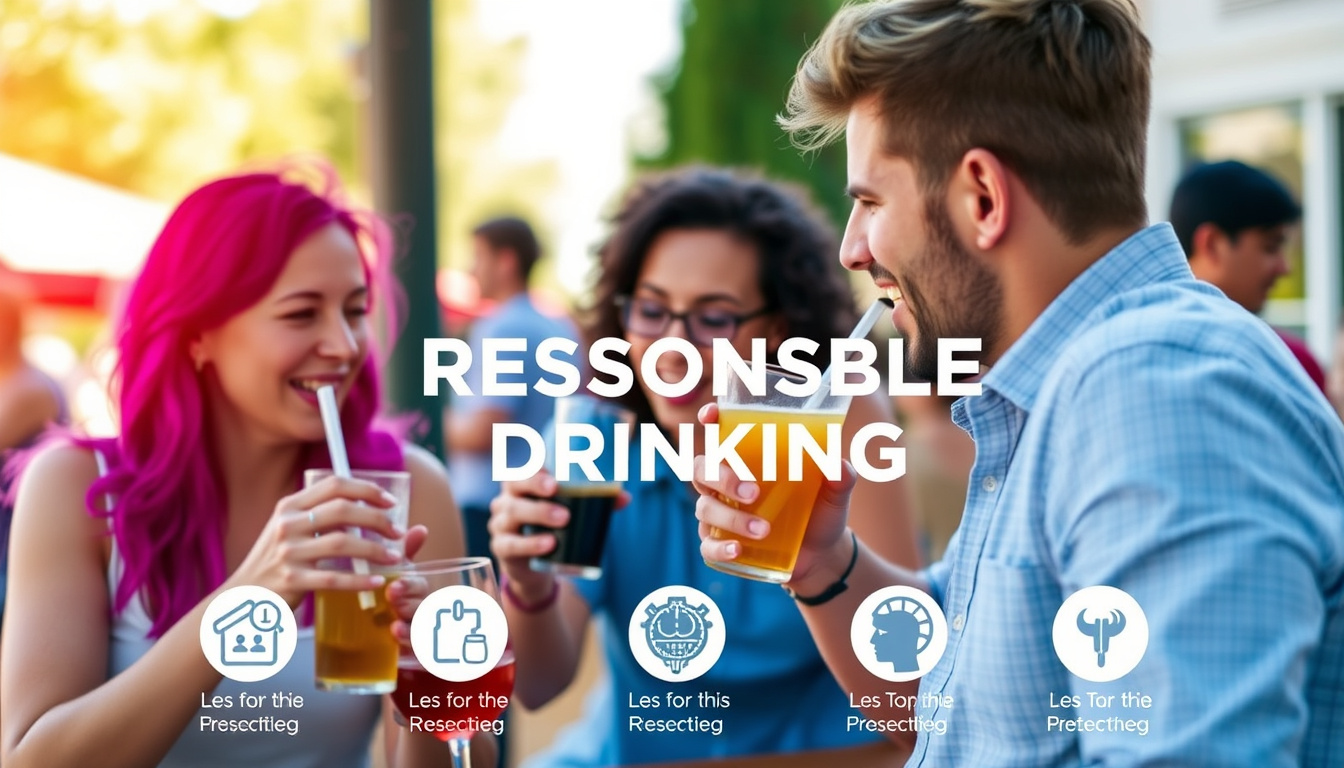
BLOG
When planning a private event in Louisiana, one of the crucial considerations is whether your staff, particularly servers, need a Louisiana ATC certification. With alcohol being a central feature of many celebrations, understanding the regulatory landscape is essential for ensuring compliance and responsible service. In this article, we will delve into the specifics of the Louisiana ATC (Alcohol and Tobacco Control) certification, discussing who needs to obtain it, the role servers play at these events, potential exemptions, and the steps to acquire certification. By the end, you’ll have a clearer understanding of whether a Louisiana ATC certification is required for servers at your next private event.
 ATC Certification Required for Servers at Private Events?’ style=’display: block; margin: auto; max-width: 100%; height: auto;’>
ATC Certification Required for Servers at Private Events?’ style=’display: block; margin: auto; max-width: 100%; height: auto;’>
Key Takeaways
- Louisiana ATC Certification is essential for servers handling alcohol at events to ensure compliance with state regulations.
- Not all servers at private events are required to have ATC Certification; specific roles and circumstances determine this obligation.
- Private events can have exemptions regarding certification based on factors like guest count and type of event.
- To obtain ATC Certification, applicants must complete relevant training courses and pass a certification exam.
- Staying informed about certification requirements is crucial for event organizers to avoid legal issues related to alcohol service.
When planning private events in Louisiana, one of the key considerations for hosts is whether or not to obtain a Louisiana ATC (Alcohol and Tobacco Control) Certification for their servers. The question often arises: Is a Louisiana ATC Certification required for servers at private events? The answer depends on various factors, including the type of event and whether alcohol will be served. Under Louisiana law, if a private event is open to the public or if alcohol is sold at the event, obtaining an ATC certification becomes necessary. This ensures that servers are trained in responsible alcohol service and understand the legalities involved in distributing alcoholic beverages. Therefore, for private gatherings that invite the public or require a monetary exchange for alcohol, securing this certification not only complies with state regulations but also promotes responsible serving practices.
In Louisiana, the question of whether an ATC certification is required for servers at private events often arises, particularly among event planners and catering services. The Louisiana Alcohol and Tobacco Control (ATC) oversees the regulation of alcohol sales and service in the state. While not all private events necessitate ATC certification for servers, it is essential to understand the specific circumstances under which this requirement applies. If the event involves the sale of alcohol, such as ticketed events or where alcohol is being sold to attendees, then obtaining an ATC certification is crucial to ensure compliance with state laws. This certification not only provides servers with essential knowledge about responsible alcohol service but also protects event organizers from potential legal issues related to alcohol regulation. Therefore, before planning an event that includes alcohol service, it’s vital to check whether ATC certification is required for your servers to maintain compliance and ensure a seamless experience.
‘The only way to do great work is to love what you do.’ – Steve Jobs

The Role of Servers at Private Events
When planning private events in Louisiana, it’s essential to consider various regulations that govern the service of alcohol, particularly regarding the role of servers. A common question arises: ‘Is a Louisiana ATC Certification Required for Servers at Private Events?’ The short answer is yes, obtaining an Alcohol and Tobacco Control (ATC) certification is indeed crucial for servers at these gatherings. This certification ensures that servers are knowledgeable about responsible alcohol service, which not only promotes safety but also helps in abiding by state laws. It covers critical areas such as identifying underage guests, managing intoxicated patrons, and adhering to local regulations, making it a vital component for anyone involved in the alcohol service at private events. Additionally, having certified servers can enhance the overall event experience by fostering a professional atmosphere, ensuring guests are well taken care of while maintaining compliance with legal standards.
Exemptions and Special Cases
When it comes to understanding the requirements for serving alcohol at private events in Louisiana, many event planners and servers often wonder, ‘Is a Louisiana ATC Certification Required for Servers at Private Events?’ The answer depends on several factors, including the nature of the event and the type of alcohol being served. Generally, a Louisiana Alcohol and Tobacco Control (ATC) certification is mandatory for servers at establishments that sell alcohol to the public. However, when it comes to private events—where alcohol is served for personal, rather than commercial purposes—the regulations can change. For instance, private events held in a homeowner’s residence typically do not require servers to have ATC permits, provided they are not charging guests for the alcohol. Conversely, if the event is catered or involves a third-party vendor, it’s crucial to ensure that all serving staff are certified. Understanding these exemptions and special cases can streamline the planning process and ensure compliance with Louisiana alcohol laws.

If you’re planning to serve alcohol at private events in Louisiana, understanding the regulations surrounding alcohol service is crucial. One of the most common questions that arises is, ‘Is a Louisiana ATC Certification Required for Servers at Private Events?’ The answer is yes, for most situations. The Louisiana Alcohol and Tobacco Control (ATC) mandates that servers handling alcoholic beverages must be certified to ensure that they are knowledgeable about responsible alcohol service and can prevent any illegal sales to minors or intoxicated individuals. To obtain the ATC certification, applicants must complete a training program that covers essential topics such as checking identification, recognizing signs of intoxication, and understanding state alcohol laws. After completing the course, attendees must pass a certification exam, which, once successfully completed, will grant them their ATC certification. This certification is not only a legal requirement but also serves to promote safe and responsible alcohol consumption at private events.
Conclusion: Compliance and Best Practices
In conclusion, understanding whether a Louisiana ATC certification is required for servers at private events is crucial for event planners and venue operators to ensure compliance with state regulations. The Louisiana Office of Alcohol and Tobacco Control (ATC) outlines specific guidelines on alcohol service, and while private events often have different requirements compared to public venues, it is essential to adhere to local laws to avoid potential fines or legal issues. Best practices recommend that servers involved in the sale or service of alcohol obtain their ATC certification, as it not only legitimizes the service but also promotes responsible alcohol consumption. By prioritizing these compliance measures, event organizers can create a safe, enjoyable environment for their guests while safeguarding themselves and their businesses.

BLOG
Navigating the world of standardized testing can be an intimidating experience for students of all ages. Understanding test-taking strategies and frequently missed questions not only equips you with the tools needed to excel but also helps in minimizing the anxiety associated with assessments. This article explores strategies to enhance your test performance, preparation techniques to ensure success, and common pitfalls to avoid during the exam process, ultimately paving the way for improved outcomes. Dive in as we uncover effective approaches to mastering tests and gaining confidence in your abilities.

Key Takeaways
- Test-taking anxiety can significantly impact performance but can be managed with effective strategies.
- Thorough preparation techniques lead to increased confidence and better test outcomes.
- Understanding the common types of test questions can help students anticipate what to expect.
- Analyzing frequently missed questions reveals patterns that can guide future study efforts.
- Effective time management during tests ensures that all questions are given adequate attention.
Understanding Test-taking Anxiety
Understanding test-taking anxiety is crucial for students and professionals alike, as it can significantly impact performance during exams. Test-taking anxiety often arises from fears of failure, lack of preparation, or the pressure to achieve certain results. One effective way to combat this anxiety is by employing test-taking strategies that promote confidence and clarity. These strategies can include thoroughly reviewing practice questions and focusing on frequently missed questions from previous exams. By analyzing these common pitfalls, students can better prepare themselves for future tests, ensuring a more relaxed and efficient testing experience. Furthermore, implementing techniques such as deep breathing exercises, positive visualization, and time management can further alleviate stress levels, allowing students to approach their exams with a calm and focused mindset.
Preparation Techniques for Success
Preparation techniques for success in test-taking are crucial for maximizing your performance and achieving your academic goals. One of the most effective test-taking strategies includes familiarizing yourself with frequently missed questions from past exams. This involves reviewing previous tests and assessment tools, which can help identify patterns in the types of questions that students often struggle with. Another key strategy is practicing with timed tests to enhance your pacing and comfort level with the exam format. Additionally, utilizing study groups can be beneficial; discussing frequently missed topics with peers often clarifies misunderstandings and reinforces your knowledge. Finally, employing mnemonic devices and revision techniques, such as flashcards or quizzes, can aid in retention of crucial information. By integrating these test-taking strategies into your study routine, you will be better prepared to tackle the exam with confidence.
‘Success is where preparation and opportunity meet.’ — Bobby Unser

Common Types of Test Questions
Understanding the landscape of test-taking strategies is crucial for students aiming to succeed in their assessments. Among the most common types of test questions, multiple-choice, true/false, and short answer formats frequently pose challenges, leading to mistakes that can significantly impact scores. Many students overlook key details in multiple-choice questions, such as qualifiers like ‘always’ or ‘never,’ which can alter the meaning of the options provided. True/false questions often hinge on nuanced understanding, causing test-takers to misinterpret the statements. Additionally, short answer questions can be daunting if students do not adequately analyze what is being asked, resulting in incomplete or off-topic responses. By identifying frequently missed questions and employing robust test-taking strategies, such as careful reading and effective time management, students can enhance their test performance and minimize errors.
Analysis of Frequently Missed Questions
When it comes to acing any exam, understanding test-taking strategies can be a game changer, especially when it involves analyzing frequently missed questions. These questions often serve as indicators of areas where students may struggle or lack comprehensive understanding. By employing effective test-taking strategies, such as elimination of incorrect answers, careful reading of questions, and practicing with past exams, learners can better navigate these tricky sections. Analyzing frequently missed questions not only helps in identifying personal weaknesses but also inspires a more targeted study approach. This can lead to improved performance, as familiarization with the types of questions that are commonly misunderstood can enhance overall confidence and mastery of the subject matter. Regular practice and strategic review of these problematic areas ensure that students are not just memorizing content but are also developing a deeper comprehension, ultimately enhancing their test-taking skills.

Effective Time Management During Tests
Effective time management during tests is a crucial skill that can significantly impact your performance and the grades you achieve. One of the key test-taking strategies is to familiarize yourself with the types of questions often included in an exam, especially those that students frequently miss. This helps you allocate your time wisely by identifying which questions may require more thought and which can be answered quickly. Start by previewing the exam, marking questions that seem particularly challenging, and ensuring that you dedicate adequate time to them. Additionally, practice using timed quizzes to improve your speed and accuracy. By employing these test-taking strategies and being aware of frequently missed questions, you can enhance your test performance and reduce anxiety associated with time constraints.
Review and Reflect: Learning from Mistakes
Review and Reflect: Learning from Mistakes is an essential component of effective test-taking strategies and frequently missed questions. After sitting an exam, many students often overlook the significant value of reviewing their responses, especially regarding those tricky questions they missed. Analyzing the rationale behind incorrect answers not only aids in understanding the subject matter better but also sharpens your test-taking skills for future assessments. For instance, if you often find yourself missing questions that involve complex problem-solving, you might benefit from targeted practice in those areas to reinforce your knowledge. Furthermore, discussing these mistakes with peers or tutors can provide new insights and alternative strategies for approaching similar questions in the future. This reflective practice fosters a growth mindset, enabling you to learn from errors rather than be discouraged by them.

BLOG
Starting a new bar or tavern can be an exciting venture, but before you pour the first drink or serve your first guest, securing a tavern license is an essential step. A tavern license grants legal permission to sell alcoholic beverages within your establishment, ensuring compliance with local laws and regulations. If you’re wondering how to obtain a tavern license for your new business, this comprehensive guide will walk you through the process, requirements, and best practices to get your business up and running legally and efficiently.
What Is a Tavern License?
A tavern license is a government-issued permit that authorizes an individual or business to sell alcohol to consumers for on-premises consumption. Unlike retail liquor licenses, which allow sales for off-site consumption, a tavern license specifically pertains to establishments like bars, pubs, or taverns that serve drinks inside their premises.
Why is a tavern license important?
Operating without one can result in hefty fines, license suspension, or even closure of your business. It also ensures your operation aligns with community standards regarding alcohol sales and safety.
Understanding the Types of Tavern Licenses
Depending on your location, there are different types of licenses related to tavern operations:
- General Tavern License: Allows the sale of all alcoholic beverages for on-site consumption.
- Specialty or Limited Licenses: Permits serving specific types of alcohol or during certain hours.
- Temporary Permits: Provides short-term licensing for special events or openings.
Before proceeding, check your local jurisdiction’s licensing options to determine which license best suits your business needs.
Step-by-Step Guide to Obtaining a Tavern License
Getting a tavern license involves a structured process that can vary depending on your city, county, or state. Here’s a breakdown of the typical steps:
1. Research Local Regulations and Requirements
Start by visiting your state’s alcohol regulatory agency or local government office. These agencies oversee licensing procedures and provide detailed information about requirements, fees, and application processes.
Key points to research:
- Types of licenses available
- Application forms and deadlines
- Specific background checks or community hearings
- Zoning and location restrictions
2. Prepare Your Business and Location
Your chosen location must comply with zoning laws, and your business should meet health and safety standards. Most jurisdictions conduct site inspections to ensure compliance.
Tips:
- Secure a suitable location that permits alcohol sales
- Obtain a business license and register your business entity
- Make sure your premises pass health, fire, and safety inspections
3. Complete the Application
Fill out the application form carefully, providing details about your business, ownership, premises, and proof of background checks if required.
Documents you may need:
- Business registration documents
- Ownership and management information
- Property lease or deed
- Fingerprints and background check authorizations
4. Submit the Application and Pay Fees
Submit your application along with the required documents and pay the application fee. Keep copies of all submitted materials for your records.
5. Attend Local Hearings or Interviews
Some jurisdictions require a community hearing or an interview with licensing officials, especially if your location is near schools, churches, or residential areas.
Be prepared to:
- Present your business plan
- Address community concerns
- Demonstrate your commitment to responsible alcohol service
6. Await Approval and License Issuance
Processing times vary, ranging from a few weeks to several months. Once approved, you’ll receive your tavern license, marking the official legal ability to serve alcohol.
7. Maintain Compliance and Renew Annually
Operating a tavern license requires ongoing compliance with regulations. Keep updated records, adhere to serving laws, and renew your license annually or as required.
Tips for a Smooth Licensing Process
- Start early: Licensing can be time-consuming, so initiate the process well before your planned opening date.
- Consult an attorney: Licensing laws can be complex; legal advice may streamline your application.
- Community engagement: Building positive relationships with neighbors and local officials can ease approval processes.
- Prepare all documentation: Incomplete applications delay processing; double-check requirements beforehand.
Common Challenges and How to Overcome Them
| Challenge |
Solution |
| Location restrictions |
Choose locations compliant with zoning laws; consult with city planners |
| Background check issues |
Be transparent and secure proper documentation; clear any legal concerns beforehand |
| Community opposition |
Engage with local residents and stakeholders beforehand |
Summary: Key Steps to Obtain a Tavern License
- Investigate local licensing requirements
- Secure a compliant location
- Register your business and obtain necessary permits
- Complete and submit your application
- Attend hearings if required
- Await approval and receive your tavern license
- Ensure ongoing compliance and renew as needed
Frequently Asked Questions (FAQs)
1. How long does it take to get a tavern license?
Processing times vary by jurisdiction, typically ranging from 4 to 12 weeks. Starting early and ensuring all required documentation is complete can help speed up the process.
2. What are the costs associated with obtaining a tavern license?
Fees depend on your location and license type, ranging from a few hundred to several thousand dollars. Check with your local licensing authority for exact fee structures.
3. Can I operate without a tavern license?
No. Operating without the necessary license is illegal and can lead to fines, suspension, or criminal charges. Always ensure your license is approved before starting operations.
Final Thoughts
Obtaining a tavern license is a vital step toward establishing a successful and legal hospitality business centered on serving alcohol. Navigating the licensing process may seem daunting, but with thorough research, careful preparation, and proactive community engagement, you can secure your license efficiently. Once licensed, you can focus on creating a welcoming atmosphere for your patrons, delivering quality service, and building a thriving business.
Remember, compliance with local alcohol laws isn’t just about legality—it’s about ensuring the safety of your customers and your community, which ultimately supports your long-term success.
Sources:
- Alcohol Beverage Control (ABC) agency (source)
Ready to open your dream tavern? Start today by understanding your local requirements and taking the first step toward obtaining your tavern license!

BLOG
The Louisiana Bar Card Exam is a crucial step for any aspiring attorney in the state. As candidates gear up for this critical test, understanding how to navigate the exam’s complexities can make all the difference between success and failure. In this article, we will delve into avoiding common mistakes on the Louisiana Bar Card Exam by comprehensively exploring its format, essential preparation strategies, common pitfalls, and important test day tips. Whether you’re just starting your study journey or are putting the final touches on your exam preparation, this guide aims to equip you with the knowledge you need to excel.

Key Takeaways
- Familiarize yourself with the Louisiana Bar Card Exam format to build effective study strategies.
- Utilize key preparation techniques such as practice tests and study groups for improved outcomes.
- Avoid common pitfalls like procrastination and inadequate review to enhance your study effectiveness.
- On test day, remember to stay calm and manage your time wisely to maximize your performance.
- After the exam, review your results and seek resources for continued learning and improvement.
Understanding the Louisiana Bar Card Exam Format
Understanding the Louisiana Bar Card Exam Format is crucial for aspiring lawyers who want to pass this important assessment. The exam typically consists of both multiple-choice questions and essay sections, designed to test your knowledge of Louisiana law and procedure. One of the key strategies for success lies in avoiding common mistakes on the Louisiana Bar Card Exam. For instance, many candidates fail to read questions carefully, leading to misinterpretation of what is being asked. Additionally, time management is another common pitfall; candidates often spend too long on certain questions, jeopardizing their ability to complete the exam. To enhance your chances of success, familiarize yourself with the exam structure, practice with past papers, and develop a pacing strategy that allows you to allocate appropriate time to each section.
Key Preparation Strategies for Success
Preparing for the Louisiana Bar Card Exam can be a daunting task, but with the right strategies in place, you can increase your chances of success while avoiding common mistakes. One of the first steps in your preparation is to familiarize yourself with the exam format and the types of questions you will encounter. This understanding will help you tailor your study plan effectively. Additionally, it’s crucial to develop a robust study schedule that allows for consistent review of materials without cramming, which is a common pitfall among examinees. Engaging in practice exams can also significantly enhance your performance, allowing you to identify areas where you may struggle and adjust your study focus accordingly. Furthermore, form study groups with peers to share insights and different perspectives on complex topics; however, ensure these sessions remain productive to avoid wandering off track, a common mistake that can hinder your exam preparation. By implementing these strategies, you can approach the Louisiana Bar Card Exam with confidence, ultimately leading to a successful outcome.
‘Success is where preparation and opportunity meet.’ – Bobby Unseld

Common Pitfalls to Avoid During Study
When preparing for the Louisiana Bar Card Exam, it’s crucial to focus on avoiding common mistakes that can hinder your performance. Many candidates fall into the trap of procrastination, which leads to cramming and a lack of thorough understanding of the material. Additionally, lacking a structured study plan can result in inconsistency, leaving important topics neglected. Another significant pitfall is underestimating the importance of practice exams; these not only familiarize you with the exam format but also help build your confidence. Furthermore, overlooking the importance of self-care can negatively impact your focus and retention. Prioritizing adequate rest, nutrition, and regular breaks during study sessions is essential for optimal performance. By being mindful of these common pitfalls while preparing for the Louisiana Bar Card Exam, candidates can enhance their chances of success.
Test Day Tips: What to Remember
On the day of the Louisiana Bar Card Exam, maintaining composure and focus is crucial, especially when it comes to avoiding common mistakes that can impact your overall performance. First and foremost, ensure you’ve reviewed the exam format thoroughly; understanding the structure can help you manage your time efficiently during the test. It’s also essential to arrive early at the testing center to eliminate any last-minute stress. Bring all necessary materials, including valid identification and any permitted items like pens or highlighters. Remember to take deep breaths and stay calm if you encounter challenging questions; often, your instinct can guide you towards the right answers. Additionally, be mindful of the instructions for each section, as misreading them can lead to unnecessary errors. Lastly, don’t forget to review your answers if time permits, as this can help you catch and correct any overlooked mistakes. By incorporating these test day tips and focusing on avoiding common mistakes on the Louisiana Bar Card Exam, you can increase your chances of success.

Post-Exam Actions: Reviewing Your Performance
After completing the Louisiana Bar Card Exam, it’s essential to take a step back and review your performance meticulously. This is a crucial phase that can significantly impact your future exam-taking strategies and ultimately lead to success. For those dedicated to avoiding common mistakes on the Louisiana Bar Card Exam, assessing your answers and identifying where you faltered is key. Begin by examining the areas where you felt less confident—did you overlook specific legal concepts or misinterpret questions? Additionally, seek feedback from peers or mentors who might provide insights into your approach. Remember, reviewing your performance not only helps you understand your weaknesses but also reinforces your strengths, setting a solid foundation for future legal challenges.
Resources for Further Improvement and Success
Successfully navigating the Louisiana Bar Card Exam requires not only preparation but also an awareness of potential pitfalls. To enhance your chances of success, it’s crucial to focus on avoiding common mistakes on the Louisiana Bar Card Exam. One of the most effective resources for further improvement is engaging in targeted study programs designed to clarify the specific areas where students often stumble. Joining study groups can provide an interactive environment where you can share insights and strategies with peers. Additionally, utilizing past exam papers and practice questions allows you to familiarize yourself with the exam format and question styles, reducing anxiety on test day. Furthermore, consider seeking guidance from experienced mentors who can provide advice based on their own successful experiences. By leveraging these resources, you can increase your understanding and retention of critical concepts while also steering clear of mistakes that could jeopardize your performance.

BLOG
In today’s fast-paced world, education has evolved to fit the lifestyles and preferences of learners through various formats. Among the most debated topics is the comparison of online vs traditional classes. This article delves into the pros and cons of online vs traditional classes, providing insights to help prospective students make informed decisions about their educational paths. Whether you are a working professional seeking career advancement or a high school graduate exploring higher education options, understanding the nuances of these learning environments is crucial.

Key Takeaways
- Online classes offer flexibility and convenience for learners.
- Traditional classes provide more face-to-face interaction and community engagement.
- Online learning can lead to distractions due to the home environment.
- Traditional classes often have a structured schedule that promotes discipline.
- Choosing the right learning option depends on personal learning styles and life circumstances.
Introduction to Online and Traditional Classes
In the modern educational landscape, the debate around the pros and cons of online vs traditional classes has gained significant momentum. Online classes have emerged as a popular alternative to the conventional classroom setting, offering flexibility and accessibility to a diverse range of learners. On the one hand, the pros of online classes include the ability to learn at one’s own pace, access to a wider variety of courses, and the convenience of participating from anywhere with an internet connection. Conversely, traditional classes often provide in-person interaction, a structured environment, and direct access to instructors, fostering a sense of community that online platforms may lack. However, both modalities come with their unique challenges and benefits, making it imperative for students to evaluate their own learning styles and needs when choosing between online and traditional formats.
Advantages of Online Classes
The shift toward online education has sparked much debate over its pros and cons compared to traditional classes. One of the key advantages of online classes is flexibility, allowing students to learn at their own pace and schedule their study times around other commitments. This convenience can significantly enhance the learning experience, especially for those balancing work or family obligations. Additionally, online courses often provide access to a wide range of resources and materials that may not be available in a brick-and-mortar setting, including recorded lectures, interactive quizzes, and discussion forums. Furthermore, online learning can eliminate geographical barriers, enabling students to enroll in programs offered by prestigious institutions worldwide without the need to relocate. However, while considering the pros and cons of online vs traditional classes, it’s important to also recognize that online education demands a high level of self-discipline and motivation, which may not suit all learners. Understanding these intricacies can help prospective students make informed decisions about their educational paths.
‘The great aim of education is not knowledge but action.’ – Herbert Spencer

Disadvantages of Online Classes
While online classes offer many advantages, there are also significant disadvantages to consider when evaluating the pros and cons of online vs traditional classes. One major drawback is the lack of direct interaction with instructors and classmates, which can lead to feelings of isolation and hinder effective communication. Additionally, online learners often have to take greater personal responsibility for their time management and motivation, as the flexibility of online schedules can sometimes lead to procrastination and decreased academic performance. Technical issues, such as poor internet connectivity or limited access to digital resources, can further complicate the learning experience. Furthermore, certain disciplines that rely on hands-on practice, such as laboratory sciences or arts, may not translate well to an online format, resulting in a less comprehensive educational experience. Understanding these disadvantages is crucial for potential students as they weigh their options.
Benefits of Traditional Classes
In today’s educational landscape, the debate surrounding the pros and cons of online vs traditional classes continues to intensify. One significant advantage of traditional classes is the structured learning environment they provide. Students benefit from face-to-face interactions with instructors, which can foster a deeper understanding of the material as questions can be asked in real-time. Additionally, traditional classes nurture a sense of community and camaraderie among students, which can enhance motivation and encourage collaboration on academic projects. Furthermore, the immediate feedback from teachers in a physical classroom can lead to more effective learning, allowing students to grasp complex concepts promptly. Overall, the benefits of traditional classes highlight their enduring relevance, even as online learning continues to rise in popularity.

Drawbacks of Traditional Classes
While traditional classes have long been the foundation of education, there are several drawbacks that can influence a student’s learning experience compared to online options. One significant con is the rigid scheduling often associated with in-person classes. Students must commute to a set location at specific times, which can be inconvenient and time-consuming, ultimately impacting their ability to balance work and study. Furthermore, traditional classrooms may not cater to individual learning styles, as they tend to follow a one-size-fits-all approach. This can lead to disengagement for students who thrive in more interactive and versatile learning environments. Additionally, the reliance on face-to-face interaction can be limiting for students who may prefer the comfort and flexibility that online classes provide. Therefore, when evaluating the pros and cons of online vs traditional classes, it’s essential to consider these drawbacks of traditional education and how they can affect overall academic success.
Conclusion: Choosing the Right Learning Option
In conclusion, when deciding between online and traditional classes, it’s essential to weigh the pros and cons of online vs traditional classes based on your personal learning style, schedule, and educational goals. Online classes offer remarkable flexibility, allowing students to learn at their own pace and often at a reduced cost. This format is ideal for self-motivated learners who can manage their time effectively. On the other hand, traditional classes provide face-to-face interaction, structured schedules, and can enhance communication skills through direct engagement with instructors and peers. However, they often come with a higher price tag and commute times that might not fit everyone’s lifestyle. Ultimately, choosing the right learning option involves careful consideration of these factors to find the format that best suits your needs and paves the way for academic success.

BLOG
In today’s social landscape, alcohol is often a central ingredient at celebrations, gatherings, and casual get-togethers. While moderate drinking can be enjoyable and socially engaging, it is crucial to prioritize alcohol safety and responsible drinking habits to protect yourself and others. Ensuring alcohol safety involves understanding how alcohol affects your body, knowing your limits, and taking proactive steps to prevent harm. This article explores essential tips for these purposes, empowering you to make informed choices and foster safer social environments.
Why Is Alcohol Safety Important?
Alcohol safety is vital because excessive or irresponsible drinking can lead to a variety of harmful outcomes, including accidents, injuries, poor decision-making, and long-term health problems. According to the Centers for Disease Control and Prevention (CDC), alcohol-related incidents are a leading cause of preventable injuries and death worldwide. Promoting responsible drinking helps reduce these risks, encourages healthier behaviors, and enhances overall well-being during social interactions.
Understanding the Effects of Alcohol on Your Body
Before diving into safe drinking practices, it’s important to understand how alcohol impacts your body. When consumed, alcohol affects your central nervous system, impairing judgment, coordination, and reaction times. These effects vary based on factors like age, weight, gender, metabolism, and tolerance levels. Recognizing these impacts helps you better gauge your limits and avoid adverse outcomes.
Key Tips for Ensuring Alcohol Safety and Responsible Drinking
1. Know Your Limits and Practice Moderation
One of the foundational principles of alcohol safety is knowing how much alcohol your body can handle comfortably. Generally, moderation means up to one drink per day for women and up to two drinks per day for men, according to the CDC. Excessive drinking increases the risk of accidents, aggressive behavior, and health issues. To stay within safe boundaries:
- Be honest with yourself about your tolerance.
- Avoid peer pressure to drink more than you can handle.
- Pace your drinks, taking a break of at least 1 hour between beverages.
2. Stay Hydrated and Nourished
Alcohol causes dehydration and can lead to hangovers and impaired decision-making. To counteract these effects:
- Drink plenty of water before, during, and after consuming alcohol.
- Eat a substantial meal before drinking to slow alcohol absorption.
- Choose foods rich in healthy fats and proteins for sustained energy.
3. Never Drink and Drive
Driving under the influence is perhaps the greatest danger associated with alcohol consumption. It significantly impairs your ability to operate a vehicle safely. To prevent this:
- Arrange for a designated driver who abstains from alcohol.
- Use public transportation, taxis, or rideshare services.
- Make alternative plans in advance if you plan to drink.
4. Look Out for Your Friends and Be Responsible
Being attentive to others’ well-being is a critical aspect of alcohol safety. If you notice someone showing signs of intoxication or distress:
- Offer to help them get home safely.
- Avoid pressuring others to drink more.
- Know the signs of alcohol poisoning, such as confusion, vomiting, seizures, or unconsciousness, and seek emergency help immediately.
5. Protect Yourself from Unsanitary or Unsafe Drinking Environments
Unsafe environments can contribute to risky behaviors or exposure to tampering. To protect yourself:
- Purchase alcohol from reputable sources.
- Do not accept drinks from strangers.
- Keep an eye on your drink to avoid tampering.
6. Be Aware of Alcohol Interactions with Medications
Alcohol can interact negatively with various medications, reducing effectiveness or causing harmful side effects. Always check with your healthcare provider or read medication labels before drinking. When in doubt, abstain from alcohol to ensure safety.
Practical Tips for Responsible Drinking in Social Settings
Enjoying alcohol responsibly in social settings involves proactive strategies. Here are some practical tips:
- Set a limit for yourself before you start drinking.
- Alternate alcoholic beverages with water or soft drinks.
- Use smaller glasses or drinks to control portion sizes.
- Stay engaged in activities that don’t revolve around drinking.
- Be prepared to leave or take a break if feeling overwhelmed.
The Role of Education and Community in Promoting Alcohol Safety
Creating a culture of responsible drinking extends beyond individual actions. Community programs and educational campaigns play a vital role. Schools, workplaces, and local organizations can offer resources that:
- Inform about the effects of alcohol.
- Promote responsible drinking behaviors.
- Support those struggling with alcohol misuse.

Research indicates that education and stigma reduction significantly improve alcohol safety outcomes (source). Encouraging open conversations and making resources accessible are essential steps toward safer communities.
Frequently Asked Questions About Alcohol Safety
1. What are the best practices for alcohol safety during social events?
Best practices include setting personal drinking limits, pacing your drinks, staying hydrated, arranging transportation home beforehand, and watching out for friends’ well-being.
2. How can I identify if someone has alcohol poisoning?
Signs of alcohol poisoning include confusion, vomiting, seizures, slow or irregular breathing, unconsciousness, and skin that is clammy or bluish. Immediate medical attention is necessary if these symptoms appear.
3. What are some effective ways to promote responsible drinking in a group?
Encourage moderation, offer non-alcoholic options, designate a non-drinking leader or buddy, and foster an environment where guests feel comfortable declining additional drinks.
Conclusion: Prioritize Alcohol Safety for a Better Future
Ensuring alcohol safety and responsible drinking is a shared responsibility that benefits individuals and communities alike. By understanding your limits, practicing moderation, and looking out for others, you can enjoy social occasions while minimizing risks. Remember that making informed choices and embracing responsible behaviors contribute to healthier lives, safer environments, and a more positive culture around alcohol consumption. For more detailed guidance and support, consult reputable sources such as the CDC or local health organizations. Stay safe and drink responsibly!
Disclaimer: This article is for informational purposes only and does not substitute professional medical advice. Always consult healthcare professionals regarding alcohol-related concerns.

 ATC Certification Required for Servers at Private Events?’ style=’display: block; margin: auto; max-width: 100%; height: auto;’>
ATC Certification Required for Servers at Private Events?’ style=’display: block; margin: auto; max-width: 100%; height: auto;’>

















